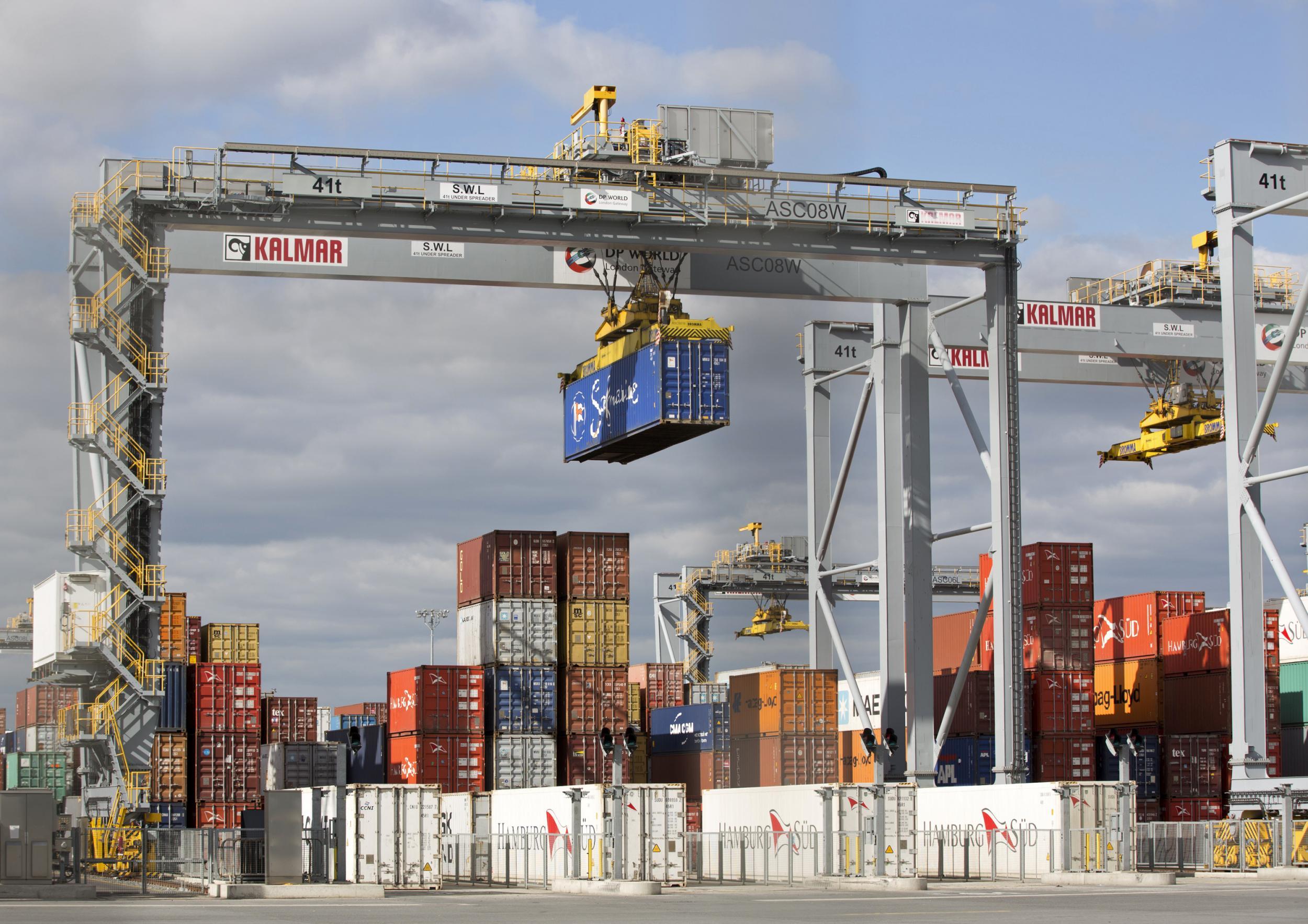UK could be hit with post-Brexit customs chaos costing businesses more than £1bn a year, report warns
Stark warning that a ‘no deal’ on customs union will have ‘extremely serious consequences’

Your support helps us to tell the story
From reproductive rights to climate change to Big Tech, The Independent is on the ground when the story is developing. Whether it's investigating the financials of Elon Musk's pro-Trump PAC or producing our latest documentary, 'The A Word', which shines a light on the American women fighting for reproductive rights, we know how important it is to parse out the facts from the messaging.
At such a critical moment in US history, we need reporters on the ground. Your donation allows us to keep sending journalists to speak to both sides of the story.
The Independent is trusted by Americans across the entire political spectrum. And unlike many other quality news outlets, we choose not to lock Americans out of our reporting and analysis with paywalls. We believe quality journalism should be available to everyone, paid for by those who can afford it.
Your support makes all the difference.The UK could be hit with post-Brexit customs chaos that would cost the economy more than £1bn a year, a report has warned, fuelling fears of what the port of Dover‘s boss termed an “Armageddon”-style scenario.
Theresa May has promised to maintain the “frictionless” transport of goods between the UK and the EU despite her plan to leave the Customs Union – although she has more recently amended this pledge to “as frictionless as possible”.
The Europe-wide economic consultancy Oxera said that if no trade deal is reached when the UK leaves the EU, customs checks would cause lengthy border delays, resulting in slower trade.
The report, authored by Oxera’s head of transport and entitled, Brexit: The implications for UK Ports, suggested huge lorry parks would have to be built in south-east England to cope while longer motorway queues would be an inevitable consequence of greater customs control.
“We estimate the impact of such a scenario to be at least £1bn per year. This is an extremely conservative estimate – it does not account for the economic costs of the uncertainty involved, the extra staff needed (for hauliers, ports and customs officials), the congestion associated with calling Operation Stack [which would see the M20 used as a makeshift lorry park], the land required for the additional customs checks [in the form of lorry parks], or of the wider economic impacts of jobs moving overseas due to uncertainty over the operation of just-in-time logistics," it said.
“The full cost is likely to be much higher.”
The EU’s chief Brexit negotiator, Michel Barnier, has warned the UK’s hopes of securing “frictionless” trade are unrealistic.
Speaking last month, he said: “Some in the UK say you can leave the customs union and build frictionless trade. That is not possible.
“Some in UK say you can leave the single market and keep all of the benefits. That is not possible.”
UK goods trade with the EU is valued at £466bn. Since the single market was established in 1993, goods leaving the UK for the EU and vice versa have not been subject to customs checks on either side.
The report warns that the event of “no deal” between the UK and the EU on a customs union would have “extremely serious” economic consequences.
“Business in both the UK and the EU needs to know very soon the customs rules under which they will be trading. The decision cannot be part of a last-minute deal on the eve of Brexit, due to the time it will take to get trade moving under the new arrangements. The costs to logistics businesses and their customers, users of the road network and, eventually, jobs in the UK of a relatively limited increase in friction will be considerable.
“And ‘no deal’ on an alternative customs union would have extremely serious consequences for the UK economy. Providing a policy direction in this area should be a priority for the government when Parliament returns from recess.”
A statement from the Government said the post-Brexit relationship being sought with the EU had been set out in its White Paper and the Lancaster House speech made last year by the Prime Minister.
A prominent group of Conservative MPs last week called on Cabinet Ministers to take urgent action to avert post-Brexit gridlock at the ports.
A report entitled Ready on Day One, endorsed by the European Research group of Tory backbenchers and written by Charlie Elphicke, the MP for Dover, calls for “proper planning” for the event of “no deal” and for an expanded treaty with France to cover customs.
“We have got less than two years: that is why we need to be ready on day one, and this report offers blueprint of the sort of steps we should be taking,” it said.
“Everyone hopes for a trade deal but we have to be prepared for every eventuality, and for customs checks.”
Join our commenting forum
Join thought-provoking conversations, follow other Independent readers and see their replies
Comments